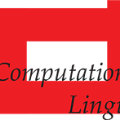Natural language generation models are computer systems that generate coherent language when prompted with a sequence of words as context. Despite their ubiquity and many beneficial applications, language generation models also have the potential to inflict social harms by generating discriminatory language, hateful speech, profane content, and other harmful material. Ethical assessment of these models is therefore critical. But it is also a challenging task, requiring an expertise in several specialized domains, such as computational linguistics and social justice. While significant strides have been made by the research community in this domain, accessibility of such ethical assessments to the wider population is limited due to the high entry barriers. This article introduces a new tool to democratize and standardize ethical assessment of natural language generation models: Tool for Ethical Assessment of Language generation models (TEAL), a component of Credo AI Lens, an open-source assessment framework.
翻译:自然语言生成模型是产生一致语言的计算机系统,在按背景顺序排列词组时产生一致的语言。尽管其普遍性和许多有益的应用,语言生成模型也具有通过产生歧视性语言、仇恨言论、亵渎性内容和其他有害材料对社会造成伤害的潜力。因此,对这些模型进行道德评估至关重要。但是,这也是一项具有挑战性的任务,需要在计算语言和社会公正等若干专门领域拥有专门知识。虽然研究界在这一领域取得了长足的进步,但由于进入障碍很大,广大民众获得这种道德评估的机会有限。这一文章提出了一个新的工具,使对自然语言生成模型的道德评估民主化和标准化:语言生成模型的道德评估工具(TEAL),这是Credo AI Lens(开放源评估框架)的一个组成部分。














